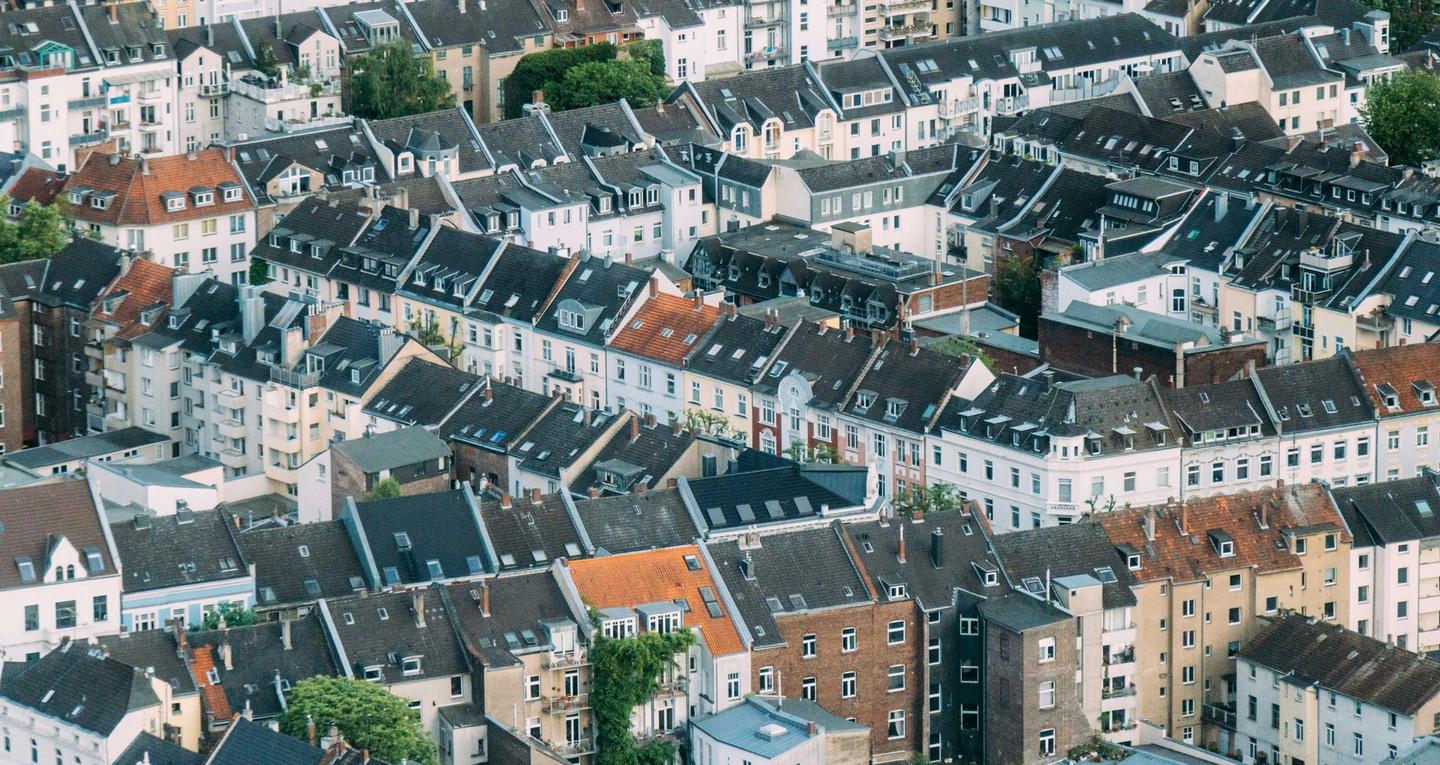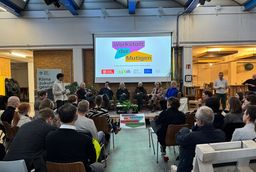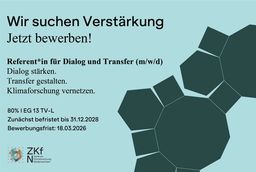Federal State of Lower Saxony supports research into the microclimate in urban areas
- July 1, 2024
- 4 min. Reading time

Urban areas and their microclimates are particularly hard hit by the effects of climate change - with far-reaching consequences for people, the environment, economic activities, mobility and infrastructures such as energy and water supply.The "Microclimate in urban areas" call for proposals now aims to research the effects of climate change in densely populated areas and to encourage the development of solutions in terms of climate protection and climate adaptation. For this purpose, a cross-location Climate Future Lab is being sought for the Lower Saxony Climate Research Center, which is due to start in summer 2025.
"Even today, 75 percent of all people live in urban areas. Due to the concentration of people, economic output and infrastructure, densely populated urban areas and their microclimates are responsible for a large proportion of energy and resource consumption on the one hand and are particularly vulnerable to the consequences of climate change on the other," says Falko Mohrs, Lower Saxony's Minister for Science and Culture. "Looking at urban areas and their potential therefore plays an important role in overcoming the challenges of climate change. With our funding, we are making an important contribution to enabling science to leverage this potential and provide solutions and innovative instruments for adaptation."
Prof. Manfred Krafczyk, Vice President for Digital Transformation and Sustainability at the Technische Universität Braunschweig, to whose department the ZKfN office is assigned, explains that research into the urban microclimate is particularly promising: "The Climate Future Lab advertised here offers an outstanding opportunity to research microclimates from various scientific perspectives in close cooperation with cities, municipalities and citizens. This special network can produce research results that not only advance the foundations of climate impact research in conurbations, but whose impact will also have a positive effect on social and individual life in urban areas."
Whether research into changes in microclimates, computer-aided simulation of microclimates or the development of bioclimatic approaches in the field of spatial planning - the call for proposals is deliberately open in terms of topic. Scientists from a wide range of disciplines such as geography, sociology, building physics, biology, etc. are invited to apply with interdisciplinary project proposals, also with the participation of actors from civil society. In the Climate Future Lab "Microclimate in urban areas", they will network with practice partners, discuss current research issues, generate ideas for research projects and develop solutions for a safe and just climate future.
Consortia consisting of at least three scientists from three different universities, higher education institutions or research institutes in Lower Saxony are eligible to apply. External partners and international universities in the consortium are also welcome. The members of the Climate Future Lab are also encouraged to acquire further cooperative, funded or commissioned research projects and third-party funding during the course of the project in order to strengthen thematic networking in the field of climate change research and possible climate impacts in the state of Lower Saxony.
The Climate Future Lab is being funded with up to five million euros from the zukunft.niedersachsen program of the Lower Saxony Ministry of Science and Culture and the Volkswagen Foundation. The program aims to promote research and teaching in Lower Saxony in the three key areas of digitality, transformation and cutting-edge research. The funding period for the Climate Future Lab is six years, subject to a positive interim evaluation. The application deadline is October 30, 2024.
Kick-off event for interested applicants
The ZKfN office is offering an online event on July 9, 2024 from 12-14 hrs to kick off the application phase. Interested scientists are cordially invited to participate. After a welcome by ZKfN Managing Director Katharina Zickwolf, participants will have the opportunity to ask questions about the call for proposals and network with other scientists in order to promote the formation of consortia. Free registration is possible via a registration form on the ZKfN website.
About zukunft.niedersachsen
zukunft.niedersachsen (formerly "Niedersächsisches Vorab") is a science program of the Lower Saxony Ministry of Science and Culture and the Volkswagen Foundation. The majority of zukunft.niedersachsen's funding comes from the equivalent value of the annual dividend on a nominal 30.2 million VW trust shares held by the state of Lower Saxony, which are subject to the profit transfer claim to the Volkswagen Foundation. In accordance with the statutes, the funds are to be allocated to scientific institutions in the state of Lower Saxony. To this end, the state government usually submits proposals for the use of funds to the Foundation's Board of Trustees in the summer and fall. In addition, a one-off special dividend of 576.3 million euros from the IPO of Porsche AG was added in 2023. This amount will also be used for the zukunft.niedersachsen program in the coming years. In 2023, a total of 510.5 million euros flowed into Lower Saxony's research and science. One of the funded projects is the new future lab Circular Economy at ZDIN. Further information on "zukunft.niedersachsen" can be found here.
The call for proposals for funding can be found on the zukunft.niedersachsen website at: https://zukunft.niedersachsen.de/foerderangebot/climate-future-labs/
As well as on the ZKfN website at: https://zkfn.de/call-for-proposals/
Contact
Katharina Zickwolf, M.A./M.A.
Managing Director
Lower Saxony Center for Climate Research
University Square 2
38106 Braunschweig
Phone: 0531 391-10070
E-mail: zkfn@tu-braunschweig.de
www.zkfn.de
More Posts
All
Big visions, but quick small steps
Social sustainability arises when different actors take responsibility, act together, and combine big visions with concrete, small steps.
4 min. Reading time
Job opening at the ZKfN
The ZKfN is looking for a dialogue and transfer officer to strengthen the exchange between science and society in climate and climate research in Lower Saxony.
1 min. Reading time
Taking a holistic approach to climate adaptation in cities
Interview with UMEX-HOPE speaker Prof. Dr. Björn Maronga
7 min. Reading time